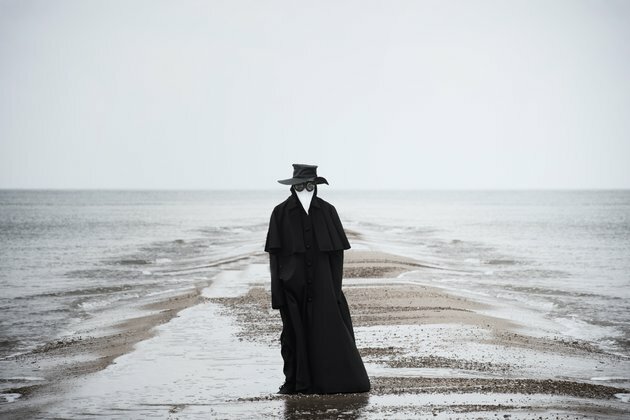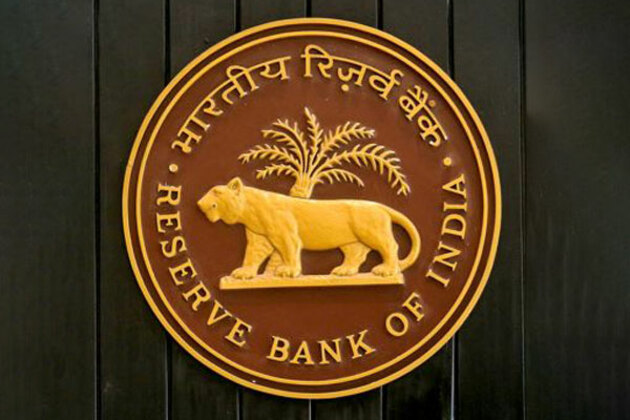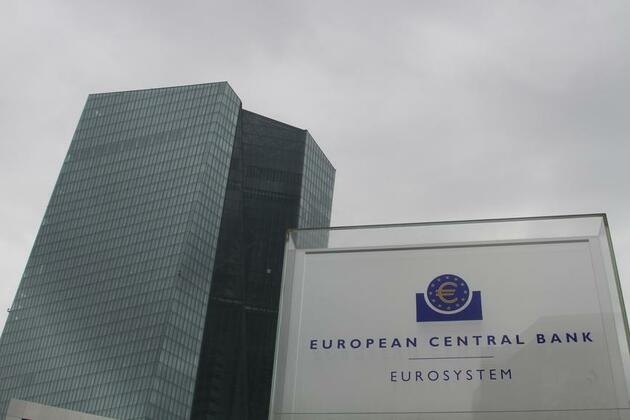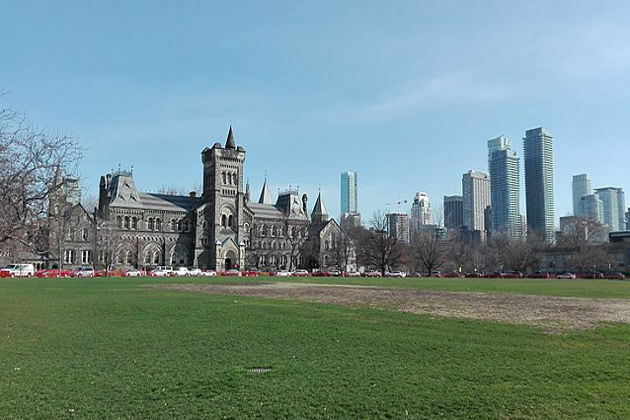How the medieval writers coped during the Black Death
The Conversation
31 Mar 2020, 20:10 GMT+10

A plague of serious proportions is ravaging the world. But not for the first time.
From 1347-51, the Black Death killed anywhere from one-tenth to one-half (or more) of Europe's population.
One English chronicler, Thomas Walsingham, noted how this "great mortality" transformed the known world: "Towns once packed with people were emptied of their inhabitants, and the plague spread so thickly that the living were hardly able to bury the dead." As death tolls rose at exponential rates, rents dwindled, and swaths of land fell to waste "for want of the tenants who used to cultivate it...."
As a medieval historian, I've been teaching the subject of plague for many years. If nothing else, the feelings of panic between the Black Death and the COVID-19 pandemic are reminiscent.
Like today's crisis, medieval writers struggled to make sense of the disease; theories on its origins and transmission abounded, some more convincing than others. Whatever the result, "... so much misery ensued," wrote another English author, it was feared that the world would "hardly be able to regain its previous condition."
A disease without borders
Medieval writers produced a variety of answers for the plague's origins. Gabriele de Mussis' Historia de Morbo attributed the cause to "the mire of manifold wickedness," the "numberless vices," and the "limitless capacity for evil" exhibited by an entire human race no longer fearing the judgement of God.
Describing its eastern origins, he further noted how the Genoese and Venetians had imported the disease to western Europe from Caffa (modern-day Ukraine); "carrying the darts of death," disembarking sailors at these Italian port-cities unwittingly spread the "poison" to their relations, kinsmen and neighbours.
Containing the disease seemed nearly impossible. As Giovanni Boccaccio wrote about Florence, the outcome was all the more severe as those suffering from the disease "mixed with people who were still unaffected ..." Like a "fire racing through dry or oily substances," healthy persons became ill.
Possessing the power to "kill large numbers by air alone," through breath or conversation, it was thought, the plague "could not be avoided."
Looking for a cure
Scholars worked tirelessly to find a cure. The Paris Medical Faculty devoted its energies to discovering the causes of these amazing events, which even "the most gifted intellects" were struggling to comprehend. They turned to experts on astrology and medicine about the causes of the epidemic.
On the pope's orders, anatomical examinations were carried out in many Italian cities "to discover the origins of the disease." When the corpses were opened up, all victims were found to have "infected lungs."
Not content with lingering uncertainty, Parisian masters turned towards ancient wisdom and compiled a book of existing philosophical and medical knowledge. Yet they also acknowledged the limitations in finding a "sure explanation and perfect understanding," quoting Pliny to the effect that "some accidental causes of storms are still uncertain, or cannot be explained."
Self-isolation and travel bans
Prevention was critical. Quarantine and self-isolation were necessary measures.
In 1348, to prevent the illness from spreading through the Tuscan region of Pistoia, strict fines were enforced against the movement of peoples. Guards were placed at the city's gates to prevent travellers entering or leaving.
These civic ordinances stipulated against importing linen or woollen cloths that might carry the disease. Demonstrating similar sanitation concerns, bodies of the dead were to remain in place until properly enclosed in a wooden box "to avoid the foul stench which comes from dead bodies"; moreover, graves were dug "two and a half arms-lengths deep."
Butchers and retailers nevertheless remained open. And yet a number of regulations were imposed so that "the living are not made ill by rotten and corrupt food," with further bans to minimize the "stink and corruption" considered harmful to Pistoia's citizens.
Community response and resolve
Authorities responded in different ways to the outbreak. Recognizing the plague's arrival by ship, the people of Messina "expelled the Genoese from the city and harbour with all speed." In central Europe, foreigners and merchants were banished from the inns and "compelled to leave the area immediately."
These were severe measures, but seemingly necessary given the varied social reaction to plague. As Boccaccio famously recounted in his Decameron, the whole spectrum of human behaviour ensued: from extreme religious devotion, sober living, self-isolation and a restricted diet to warding off evil through heavy drinking, singing and merrymaking.
The fear of contagion eroded social customs. The number of dead grew so high in many regions that proper burials and religious services became impossible to perform: new religious customs emerged pertaining to preparing for and presiding over death.
Families were changed. An account from Padua mentions how "wife fled the embrace of a dear husband, the father that of a son and the brother that of a brother."
Ultimately, there is a human element to plague too often lost in the historical record. Its influence should not be underestimated or forgotten. The modern response to pandemic evokes a similar community response. Different in scope and scale, and indeed in medical practice, administrative and public health actions remain critical.
But in 2020, we are not, as Boccaccio lamented, seeing the law and social order break down. Essential duties and responsibilities are still being carried out. Against our own 21st-century plague, wisdom and ingenuity are prevailing; citizens hang on "the advice of physicians and all the power of medicine," which unlike the 14th century, is anything but "profitless and unavailing."
Author: Kriston R. Rennie - Visiting Fellow at the Pontifical Institute of Mediaeval Studies, Toronto, and Associate Professor in Medieval History, The University of Queensland 
 Share
Share
 Tweet
Tweet
 Share
Share
 Flip
Flip
 Email
Email
Watch latest videos
Subscribe and Follow
Get a daily dose of Middle East Star news through our daily email, its complimentary and keeps you fully up to date with world and business news as well.
News RELEASES
Publish news of your business, community or sports group, personnel appointments, major event and more by submitting a news release to Middle East Star.
More InformationInternational Business
SectionShell rejects claim of early merger talks with BP
LONDON, U.K.: British oil giant Shell has denied reports that it is in talks to acquire rival oil company BP. The Wall Street Journal...
Trump-backed crypto project gets $100 million boost from UAE fund
LONDON, U.K.: A little-known investment fund based in the United Arab Emirates has emerged as the most prominent public backer of U.S....
RBI appoints Kesavan Ramachandran as new Executive Director
New Delhi [India], July 2 (ANI): The Reserve Bank of India (RBI) has appointed Kesavan Ramachandran as Executive Director of RBI with...
Eurozone inflation rate reaches 2 pct in June
The inflation is driven by the price of services, which recorded a yearly inflation rate of 3.3 percent in June, up from 3.2 percent...
Emirates layers on retrofitted aircraft with latest product, including Premium Economy to more cities
DUBAI, 1st July 2025 (WAM) -- Emirates will be layering on more retrofitted Boeing 777s and Airbus A380s on its existing schedules...
TVS Motors sold record 12.77 lakh units in April-June FY26; EV sales decline amid magnets shortage
Bengaluru (Karnataka) [India], July 1 (ANI): TVS Motor Company has recorded its highest-ever quarterly sales in the first quarter of...
International
SectionNative leaders, activists oppose detention site on Florida wetlands
EVERGLADES, Florida: Over the weekend, a diverse coalition of environmental activists, Native American leaders, and residents gathered...
Beijing crowds cheer AI-powered robots over real soccer players
BEIJING, China: China's national soccer team may struggle to stir excitement, but its humanoid robots are drawing cheers — and not...
COVID-19 source still unknown, says WHO panel
]LONDON, U.K.: A World Health Organization (WHO) expert group investigating the origins of the COVID-19 pandemic released its final...
Fox faces $787 million lawsuit from Newsom over Trump phone call
DOVER, Delaware: California Governor Gavin Newsom has taken legal aim at Fox News, accusing the network of deliberately distorting...
DeepSeek faces app store ban in Germany over data transfer fears
FRANKFURT, Germany: Germany has become the latest country to challenge Chinese AI firm DeepSeek over its data practices, as pressure...
Canadian option offered to Harvard graduates facing US visa issues
TORONTO, Canada: Harvard University and the University of Toronto have created a backup plan to ensure Harvard graduate students continue...













